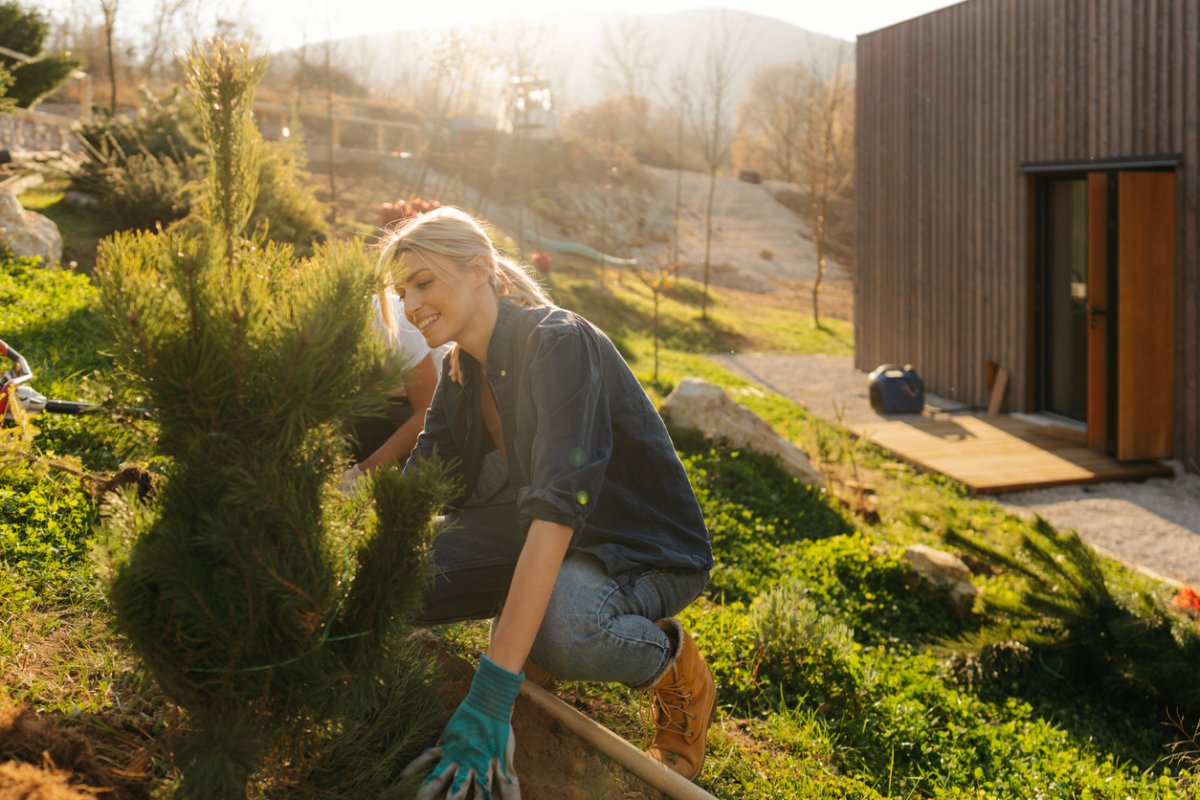

We may earn revenue from the products available on this page and participate in affiliate programs. Learn More ›
There are numerous benefits to planting trees in a yard. Trees help fight climate change, purify the air, improve the soil, help prevent flooding, reduce noise, absorb pollution, lower air temperature, reduce energy bills, and help sustain wildlife. Plus, studies indicate that trees have a significant impact on several aspects of human health.
Planting trees in the right spot maximizes the benefits you can reap from them, and helps prevent future problems, like intrusive roots. Beyond USDA plant hardiness zone guidelines, water and light requirements, and mature size of the tree, some top considerations include aesthetics, canopy height and spread, growth rate, soil type, yard size, and so much more.
RELATED: The 15 Best Trees for Any Backyard
1. Pick a side.
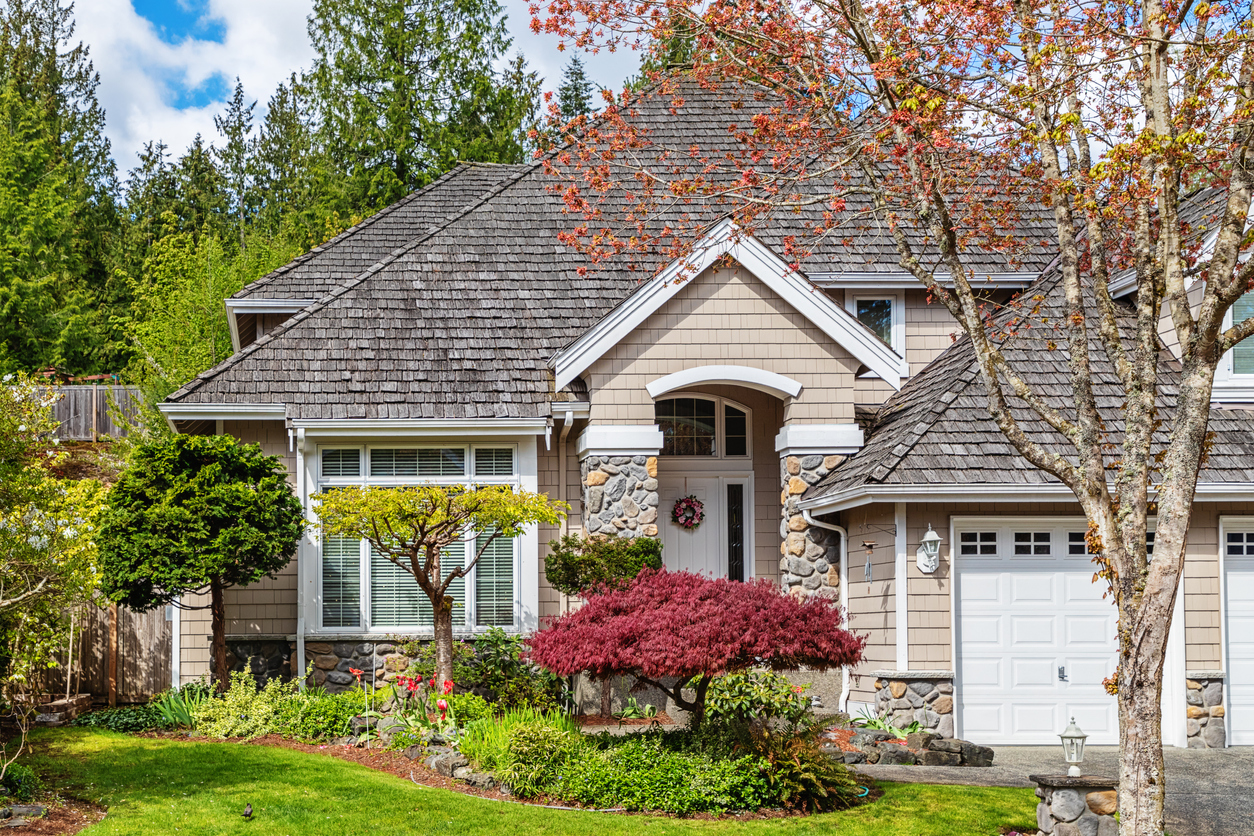
The first question landscape designer Patrick Corken with Eagle Creek Nursery & Landscape asks customers is: Will the tree be in the front or backyard?
He prefers smaller trees for the front. “You don’t want to block the view of the house from the street. You want to frame the front door for optimal curb appeal.”
Additionally, waterlines and electric lines are more likely to run through the front yard than the backyard. Therefore, he says: “Planting big trees in the front creates issues.” Also remember that the size of the lot determines the tree size that landscape designers recommend.
RELATED: The 20 Best Dwarf Trees for the Front Yard
2. Determine your goals.
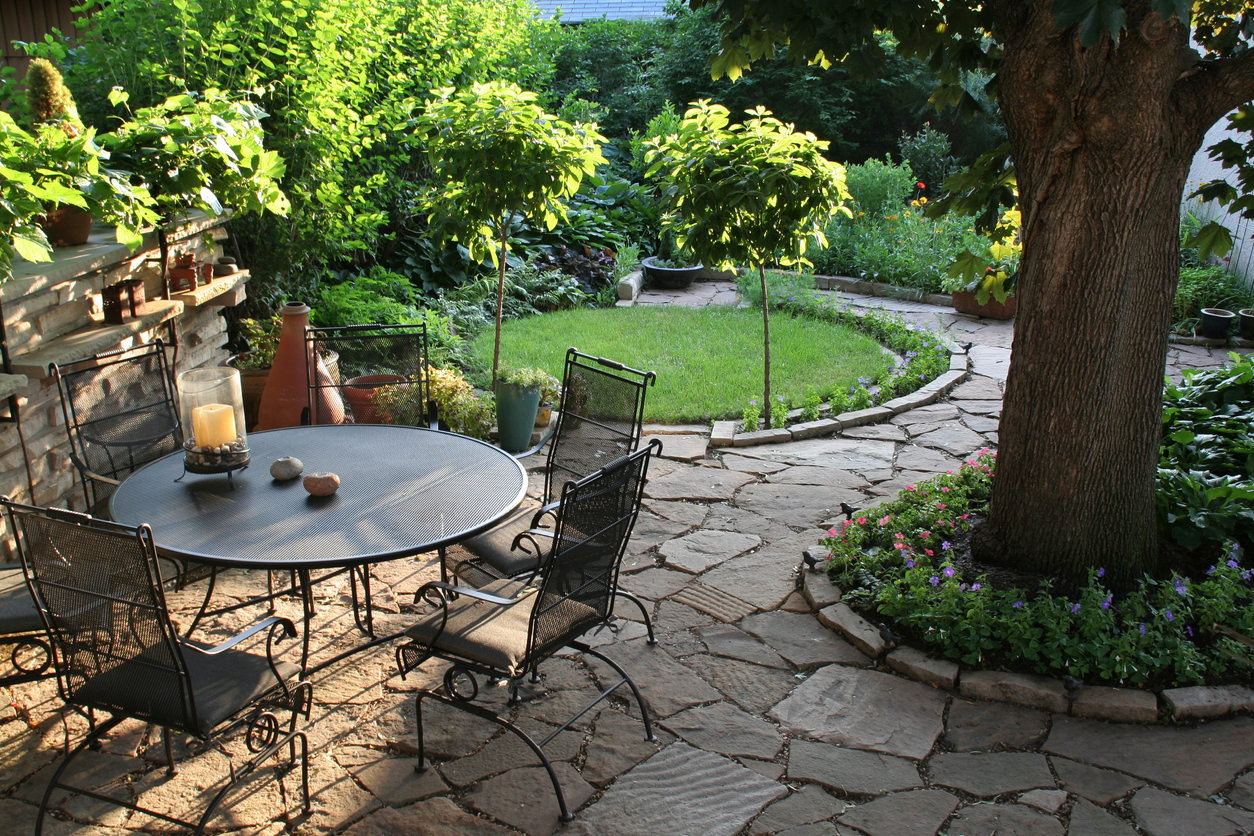
Do you want trees for shade, privacy, a windbreak, or to frame your house? Your answer will help determine the type and number of trees to plant, and it will guide placement decisions.
Corken plants shade trees off to the side to better frame the house and draw the eye to the front door. They’re easier to plant there, as well. “Pipes don’t usually run along the property lines,” he says.
Small specimen trees are best planted near the front door or in small courtyards between an entry and the garage. “Curb appeal is all about the front door.”
RELATED: Solved! The Best Time to Plant a Tree
3. Throw some shade.
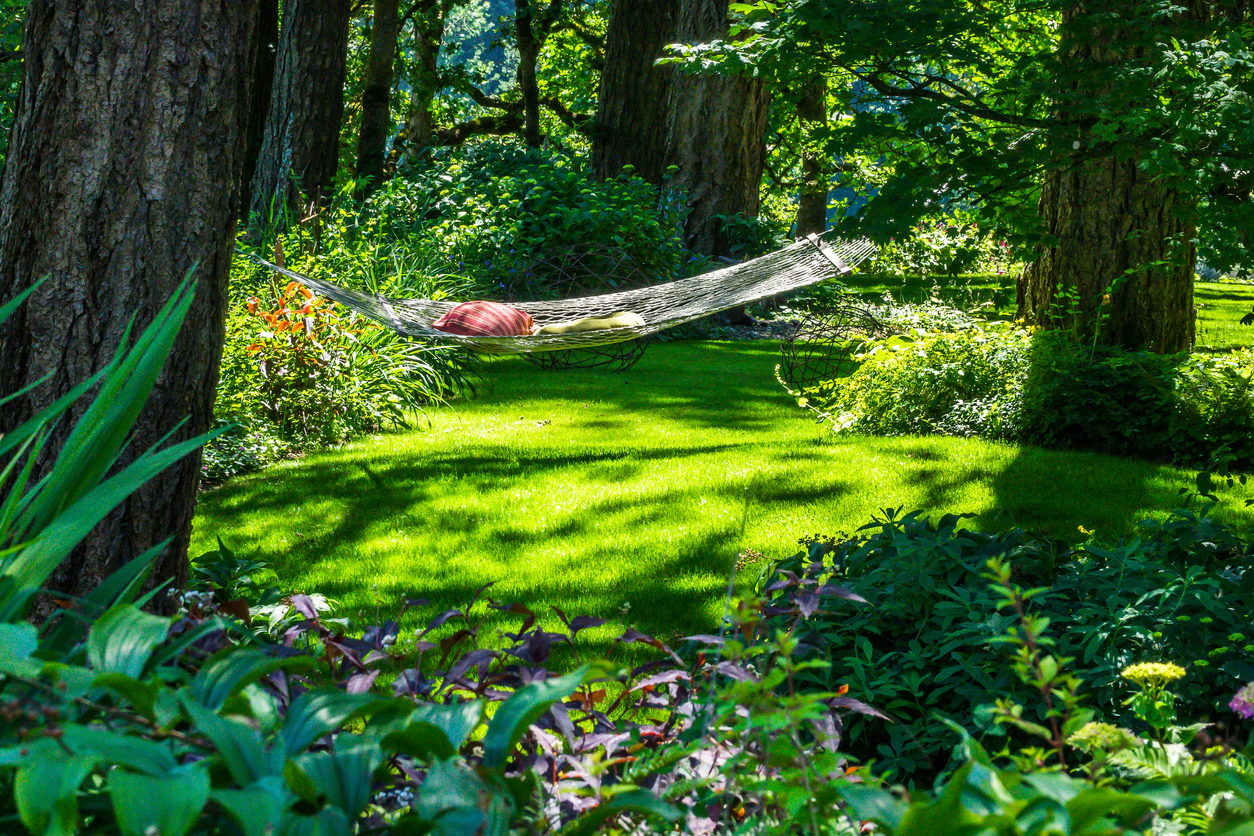
Lower your utility bill by planting large deciduous trees where they can provide shade during the hotter months. A tree on the west, one on the east, and a third on the north side of the house can reduce energy costs by up to 50 percent by providing shade during the summer and serving as a winter wind block.
Choose the right type of tree; different types of trees have different functions. “Wispy trees don’t provide much shade,” says Felicia Clemons, ISA-certified arborist with Indiana Tree Service, Inc.
4. Consider existing structures.
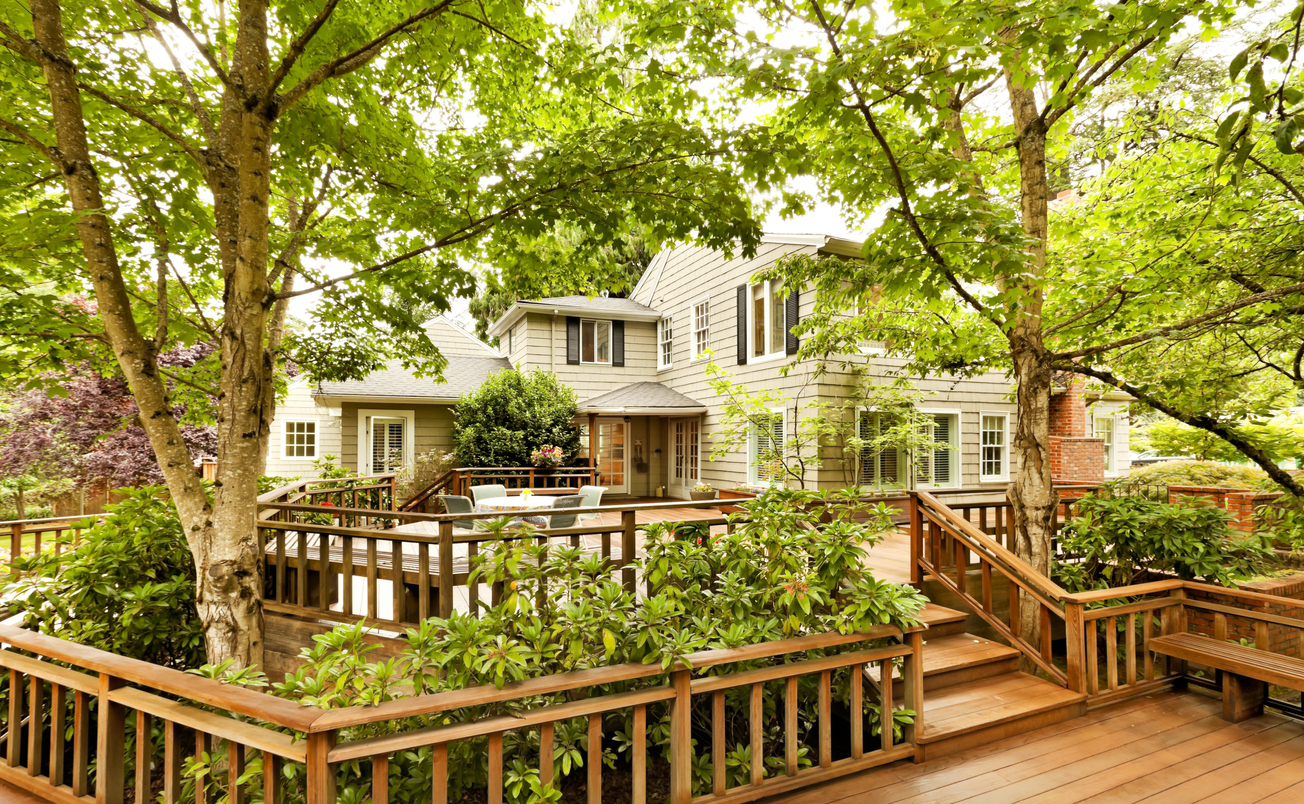
You may be able to build a deck or install a patio near or around existing mature trees, but be sure to leave enough space to account for growth and to allow air and water to reach the roots.
Be prepared for large tree roots to disturb pavers, disrupting your once-level patio bricks or stones. On the other hand, you may want to plant large trees near picnic or playground areas to provide shade for outdoor activities.
RELATED: The 15 Best Trees and Shrubs to Grow for Backyard Privacy
5. Check HOA restrictions.

Corken says that some homeowner associations keep lists of acceptable trees and shrubs for their neighborhood, so it’s important to ensure your choices are allowed. There may also be restrictions on where you can plant. For example, he says the space between the sidewalk and the curb is sometimes off-limits for planting.
In newly constructed subdivisions, builders often plant a tree in the center of the yard. If it’s a large shade tree, such as a maple or oak, Corken advises moving it to the corner of the lot while the tree is small and less expensive to relocate.
RELATED: Trees and Property Lines: 9 Things All Neighbors Need to Know for Storm Season
6. Get the spacing right.

Trees are planted 10 to 20 feet away from the house to allow for growth and to keep roots from damaging the foundation and underground pipes, so the branches of mature trees don’t damage the house structure.
The same general guideline applies for planting trees too close to each other. It’s not helpful when roots are competing for water and nutrients or branches are battling one another for light, so consider both canopy and root spread.
“Some varieties, like oak and hickory, can handle some crowding,” Clemons says. “Others, particularly spruce, can’t.” Crowding robs them of sunlight, leading to fungal disease.
RELATED: 22 Fast-Growing Shade Trees to Plant in Your Yard
7. Create a weather-, wind-, or sound-break.
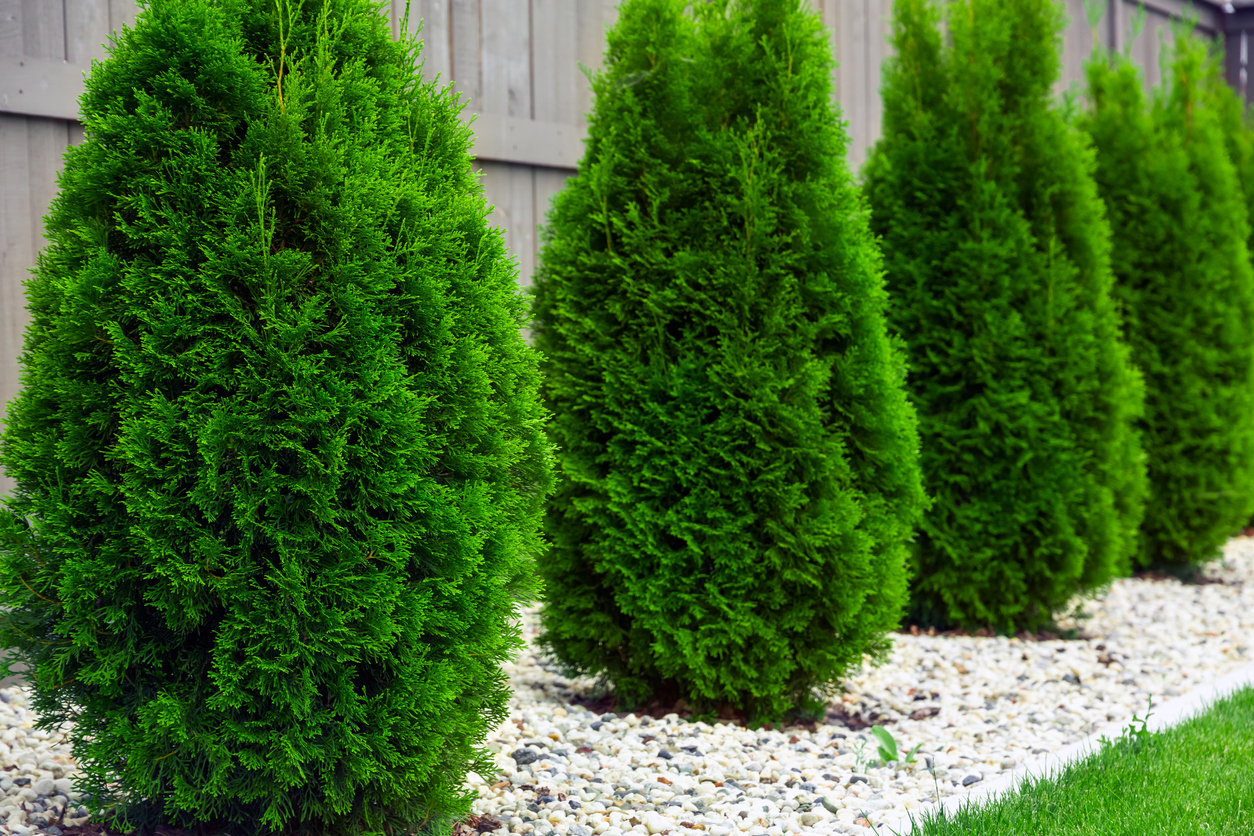
Homes in rural areas, open spaces, and new developments can benefit from a windbreak and sound barrier. Clemons suggests identifying where weather hits the house. “Plant on the west and south sides to help the AC unit.”
Where space permits, Corken likes to use Norway spruces, which can grow 40 feet tall and 20 feet wide. Rows of arborvitaes or poplars create the same effect. Planting trees along the property’s perimeter prevents snow drifting. Typically, these are planted near a property line in the direction of prevailing winds or to help block the source of unwanted sound.
8. Follow the sun.
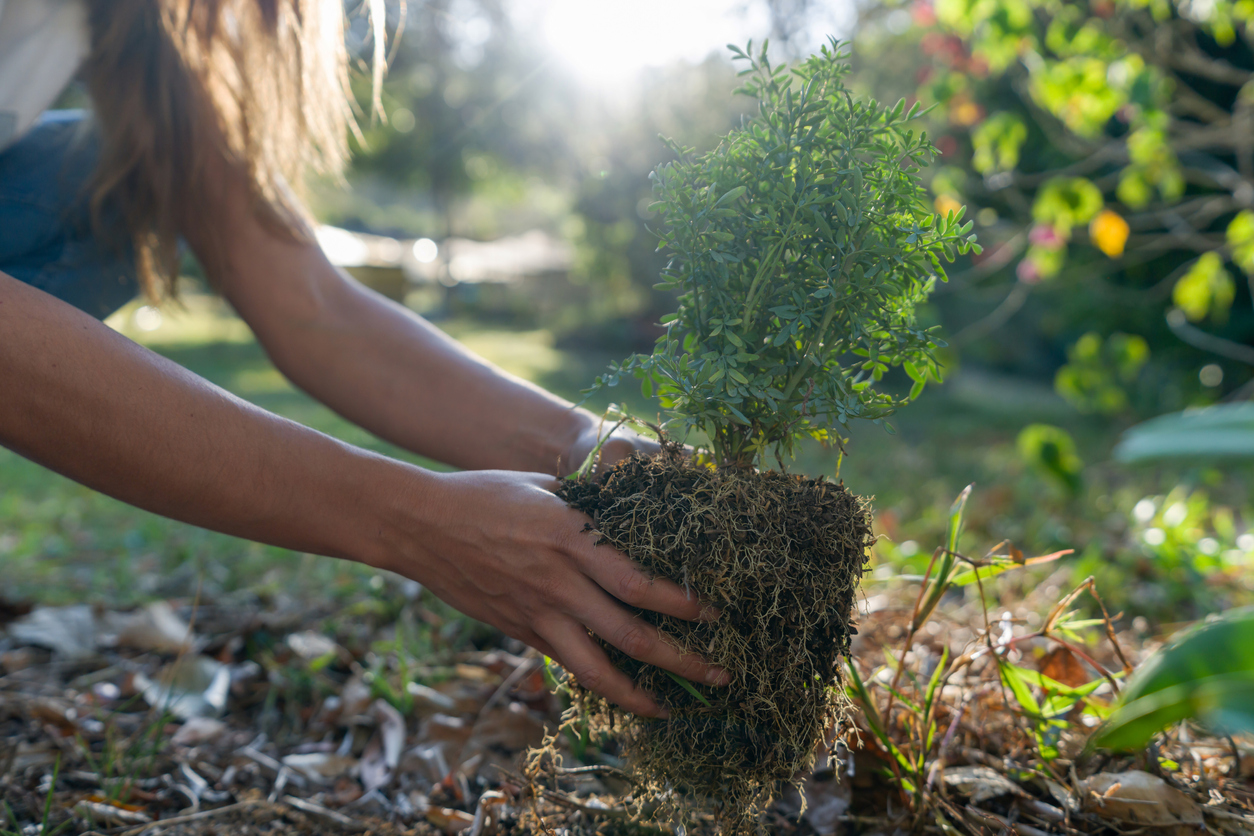
Be sure the tree you want to plant will be able to get the appropriate amount of sunshine in the desired location. Bigger, established trees or buildings may block the light. Clemons points out that crowding can lead to less branching—or worse. Trees that don’t like to be crowded can develop fungal issues.
Also consider how much sunlight the tree will block from the house. During hot months, you may welcome the cooling effects of trees, but you may want to welcome that sunshine during the winter. Planting deciduous trees is a good option to help your energy costs throughout the year.
RELATED: The Best Trees to Plant for Fall Foliage
9. Size it right.
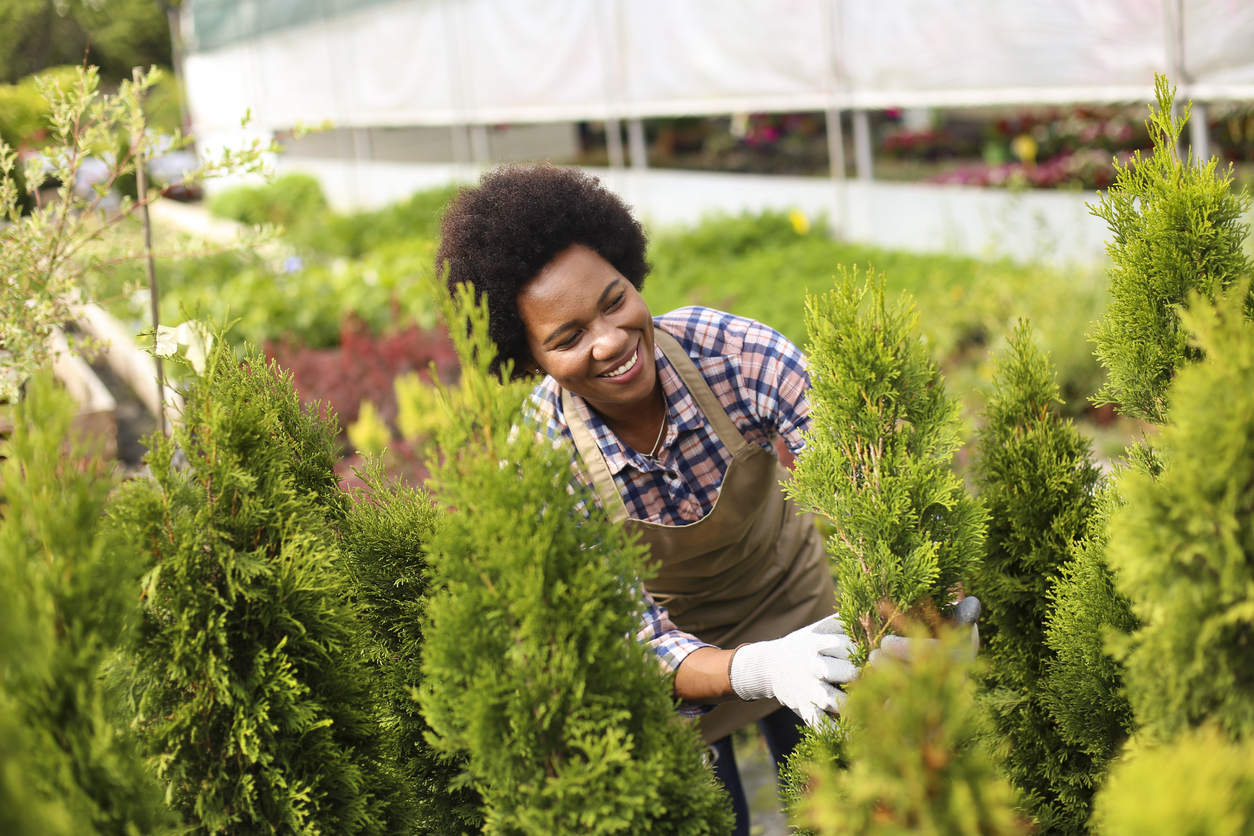
It’s important to understand how big a tree will be when it’s mature—and how quickly it will grow—when deciding where to plant it. Shape is also important. Tall, columnar evergreens such as arborvitae can fit in corners where other trees can’t.
Avoid planting trees with wide canopies too close to sidewalks. As they grow, they may quickly obscure the walkway. Corken urges homeowners to plant trees that match the scale of the house. For example, a medium-size tree works better for a one-story house, a big tree fits better for a two-story house. Corken says: “The larger the house, the larger the lot, the larger the tree.”
RELATED: 14 Best Plants for Under Trees
10. Watch the water.
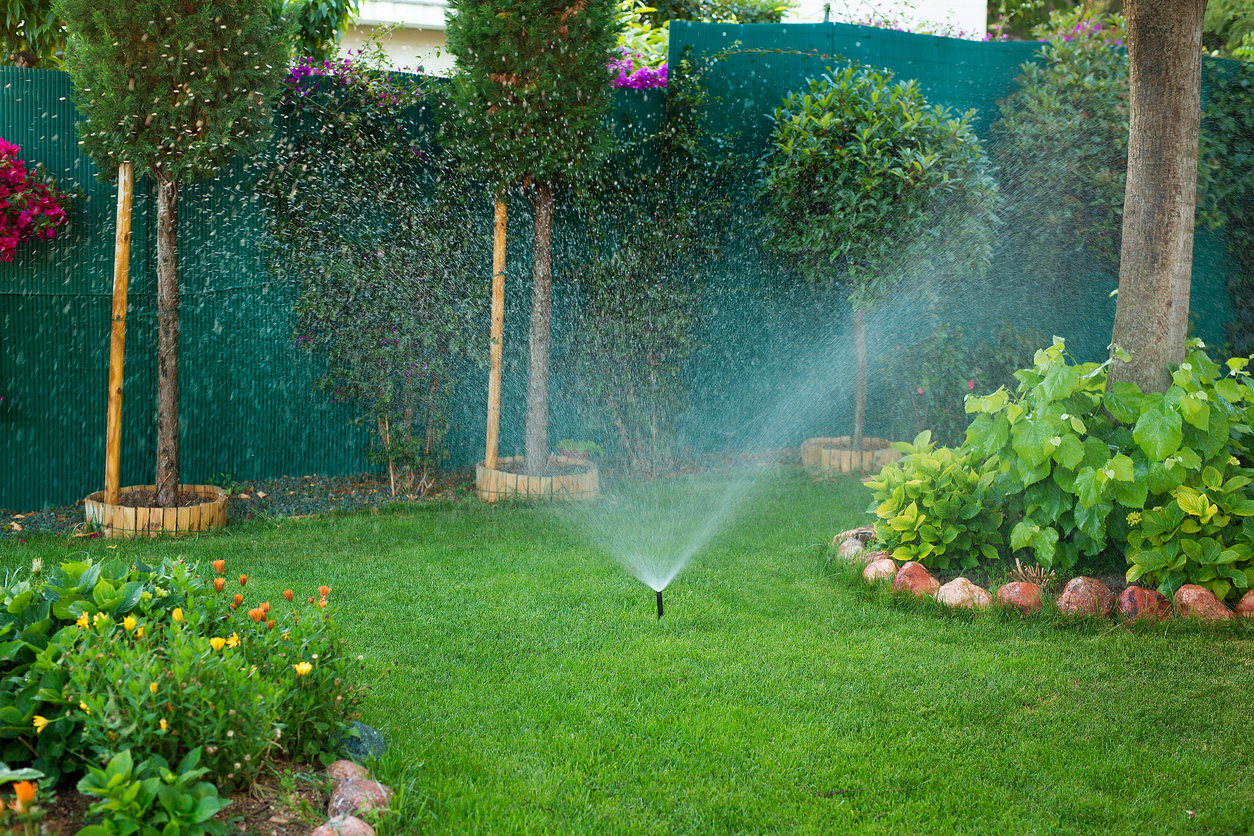
Another question Corken asks customers is if their lawns are irrigated. “Some trees don’t like a lot of water, like sugar maples and oaks.”
Whether your lawn is irrigated or simply has a low, boggy area that collects water during heavy rains, either avoid planting trees there or find varieties that don’t mind having wet feet. Corken suggests red maples, also known as swamp maples, due to their penchant for flourishing in soggy terrain.
11. Choose an area with good soil.
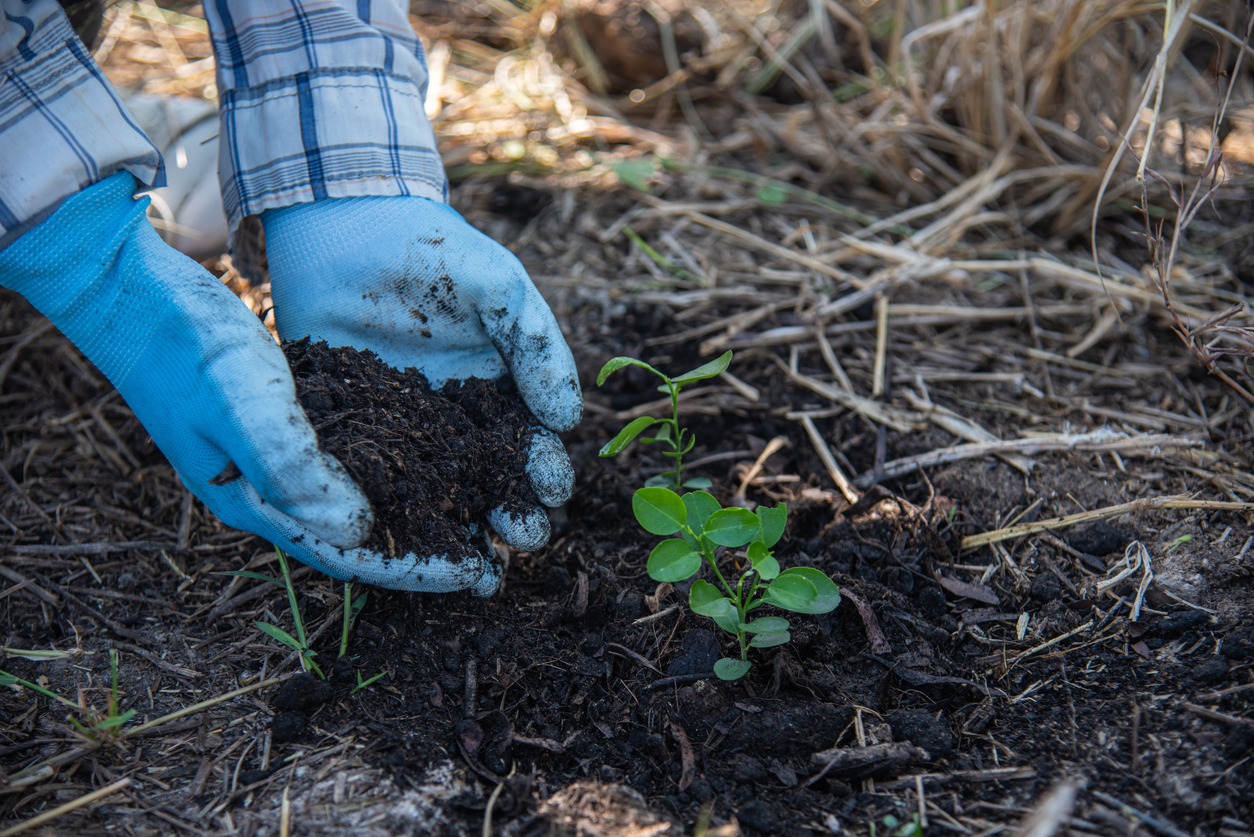
There may not be much choice, depending on where you live, but placing a tree in the best soil possible helps it succeed. In many new subdivisions, the topsoil has been removed. For large portions of multiple states, that leaves heavy clay behind.
“A slow percolation rate with clay soil is a big issue,” Corken advises. But don’t add too much compost or plant it too deep. “Plant up a couple inches for drainage and mulch the roots.” Don’t add good soil to the hole because the plant will settle and may be too deep. Plant trees in the soil they’ll grow in.
